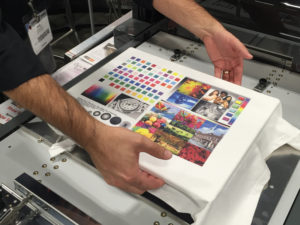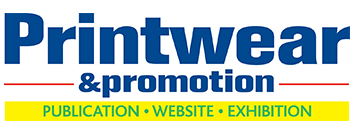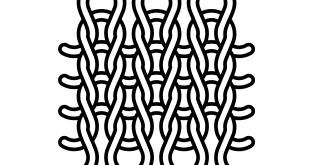
Resolute Print Group MD, Colin Marsh, reports on the launch of the first dual process printer at the NBM show in Texas, along with hints and tips on getting the best durability in the wash.
The direct to garment print process is now a well established and recognised process in the textile decoration industry. The gel with screen printers has been somewhat rocky and did meet with some resistance, until now. DTS, direct to screen technology, is rapidly replacing the film process due to its speed, accuracy and refined registration capabilities. Inherently a high end product normally starting upwards of £35,000, DTS did service a niche portion of the market.
Introducing a printer built for two processes is a clever way to reduce the physical footprint equipment uses at the same time as streamlining two processes with one operator. This not only reduces floor space costs it reduces labour costs. The first of these dual process printers made its first appearance at the NBM show in Arlington, Dallas in March.
The FREEStyler Hybrid, DTG – DTS device prints T shirts and garments using water-based pigmented ink and is also a high resolution table-top direct to screen printer. This clever combination allows screen printers to upgrade from film positives at a fraction of the normal cost while introducing the capability to produce DTG prints.
This would be impossible to do with a remanufactured printer as the ink systems are not hot swap like the FREEStyler Hybrid.
Says Lance Heap VP of EXILE Technologies: “The FREEStyler Hybrid is a printer designed and manufactured from the ground up. The partnership with Resolute over the last 12 months has allowed us to design a unique dual process system that is unmatched in the DTS market for not only price but also performance. Manufactured in the UK by Resolute everything from the printing bar and carriage to the chassis and electronics are custom to the product. The success of the launch has been phenomenal with direct sales being made right off the booth in the first day.”
Getting the best durability in the wash from your DTG printer
When using a water-based ink for DTG printing the preparation and curing will be the key to the final garments durability in the wash. These simple steps will make sure you are getting the best you can from your DTG system.
1) Make sure garments are not too moist before pre-treating. When you cure the pre-treatment the less moisture present the better.
2) When printing on darks and colours with white ink and CMYK make sure the white ink has actually dried off to a gel or harder rather than still a liquid before the CMYK prints. Printing the second pass to quickly will stop the CMYK binder adhering to the white correctly resulting in reduced performance in the wash. Most RIP software and some DTG printers have a delay setting to allow you to leave the white layer for 30 to 60 seconds if the layer is heavy.
3) Curing activates the binders in the ink which gives the durability. Moisture must be removed by the heat to allow this to happen. With a heavy layer of ink it might be necessary to open the heat press half way through the cure and remove the paper to allow excess steam to escape. Do not remove the shirt while doing this as the heat will be lost and the cure stops. Approximately 30 seconds of breathing can make a massive difference to the adhesion between the CMYK and white ink. Close the heat press with the paper in place for the remainder of the cure.
4) Always recommend using liquid detergent which is non biological. Powders and biologicals are very aggressive and designed to remove stains, which the ink is.
Following these simple steps can achieve better washing results, all systems are different so some tweaking of times etc may be necessary.
 Printwear & Promotion The Total Promotional Package
Printwear & Promotion The Total Promotional Package




